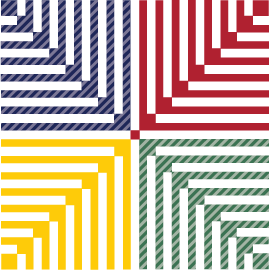We got the chance to speak with Beirut-based Anna Fahr about her debut short narrative film, Transit Game.


BPFF: Tell us what Transit Game is about.
AF: Transit Game is a brief encounter between two generations of refugees who cross paths on a remote road in northern Lebanon. Saad and Nada are Palestinian kids who spend their days peddling newspapers to drivers who pass by. Mohammad is a Syrian refugee who has just escaped from the war and is searching for a place for his family. Their brief encounter provides a glimpse into the shared uncertainties they face as refugees with no home to return to and no country to call home.
BPFF: What inspired you to make the film?
AF: I visited Shatila refugee camp in Beirut to document a concert by Palestinian hip hop artist Boikutt in late 2011, and during my visit I saw the dire living conditions that Palestinians in Lebanon endure. It made me wonder what the fate of the Syrian refugees who were new to Lebanon would be and that’s what sparked the idea for Transit Game.
BPFF: Tell us about the kids who star in the film, and what it was like working with them.
AF: Sajed Amer (Saad) and Sanaa Amer (Nada) are incredibly talented young actors and I was lucky to be able to work with them on this film. We auditioned dozens of kids and they were chosen for the lead roles because they really understood what the characters were about and were also able to bring their own unique interpretations to the roles, which is what brought the characters to life.
They also worked well each other (they’re actually cousins in real life) and this connection helped convey the close friendship between Saad and Nada. People oftentimes say that working with kids can be a challenge, but in this case it was a wonderful experience. I would work with both Sajed and Sanaa again in a heartbeat.
BPFF: That’s great. Can you talk more about why you chose to make a film about Palestine that takes place in Lebanon during the Syrian War?
AF: I see these countries as being inextricably connected and feel that the current crisis we face in the region should be addressed as a regional crisis with global impact. The problems in the Middle East are oftentimes oversimplified in mainstream Western media, and I wanted to tell a story that shows the complexities of some of these issues and their impact on ordinary people who happen to be Palestinian, Syrian, and Lebanese. It was also important to show the impact the refugee crisis has had on Lebanon–with almost 1.5 million Syrian refugees (one third of Lebanon’s population) in addition to hundreds of thousands of Palestinian refugees that have been living in Lebanon for many decades, the situation inside the country is only getting worse, and Lebanon needs more support from the international community to relieve some of the burden.
BPFF: What is the significance of telling a Palestinian narrative through the eyes of a child?
AF: The film’s narrative and visual style were largely influenced by post-revolutionary Iranian cinema. Films like Where is the Friend’s Home by Abbas Kiarostami and Children of Heaven by Majid Majidi present social issues from the vantage point of children, which I think helps the audience relate to the story more. There is something profoundly disheartening about seeing a child grow up too fast and because of the crisis we are facing right now in the region, there is an entire generation of displaced children whose childhoods have been taken away and whose futures remain uncertain.
BPFF: How do the themes of displacement and alienation play your in your piece?
AF: The theme of displacement is central to the narrative of the film. Although the three characters are coming from different places and are from different generations, they each must grapple with the reality of living somewhere they do not belong while being connected to a homeland they cannot return to. Exile and displacement are themes that I’ve long been fascinated by as an Iranian-Canadian-American filmmaker, and I feel that audiences can relate to these experiences no matter what their nationality or cultural background is, which is partly what drives me to explore these themes in my work.
BPFF: Why did you decide to call your film Transit Game?
AF: The idea of being in transit – being in between places – is central to the story. The idea of the game can be interpreted in different ways. On the one hand, there is the game that Nada and Saad play to pass the time while selling newspapers, and on the other hand, there is the larger geopolitical game being played by countries that continue to support war, which leads to the displacement of families and civilians. This creates an ongoing cycle of war and displacement in the region – a game that never seems to end.
BPFF: What was the most challenging thing about shooting the film?
AF: We were shooting the film at a time when attacks inside Lebanon were on the increase and this created an atmosphere of tension and uncertainty, as we did not know when and where the next attack would take place. We ended up choosing a location that was fairly remote and that had not been affected by the recent spate of violence that was going on. The time frame we had to work with, which was only three days, also made it challenging to cover all of the shots I had originally planned. However, the cast and crew worked tirelessly to make sure that we got through everything and I’m extremely grateful for their dedication and efforts, without which the production would not have ran as smoothly as it did.
–Alia Gilbert for BPFF
Transit Game screens Friday, October 24, 2014 at the Museum of Fine Arts, Boston at 7 pm as part of a thematic thread on Stolen Childhood. It is followed by one of our 2014 featured films, Giraffada. The show is co-presented by the Arlington International Film Festival. View the full festival schedule and buy tickets here.

